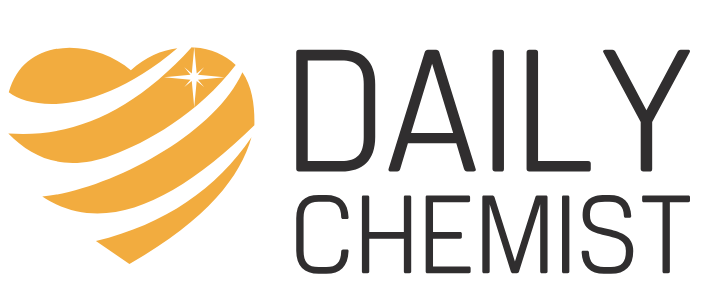Migraine is a hurting condition. It can affect your overall life by creating irritating symptoms and uneasiness. However, the problem is not dangerous. There are various methods and procedures, which can help in your treatment. You and your doctor may sit and decide the most suitable and well-working option for you. It may rely upon your condition, the cause responsible for headache, and the response of your body towards the treatments. Proper and timely attention can help relieve the symptoms and prevent worsening the condition. However, if the healing is avoided, the condition can worsen.
People with aura symptoms of throbbing headache remain at risk of having an ischemic stroke. It is the most common type of stroke, which occurs when the blood vessels are blocked and result in blood clots.
What causes migraines?
What causes severe headaches remains a mystery. However, healthcare providers observe genetic factors, abnormal secretion of brain chemicals, and irregular flow of blood to the brain responsible for the development of the condition. These causes can be ruled out in a diagnosis. Your doctor may begin with treatment as per the cause liable for your condition.
What can trigger a migraine?
Various aspects can evoke a throbbing headache. They include lifestyle, eating habits, and environmental factors. Let’s learn what they are.
- Lifestyle
- Skipping meals
- Too much stress or anxiety
- Physical strain
- Abnormal or irregular sleeping patterns
- Eating habits
- Taking spicy and fatty foods such as potato chips, processed meats, butter, chocolates, and foods containing artificial sweeteners
- Environmental factors
- Automobile or tobacco smoke
- Noises
- Powerful smells
- Bright and dazzling lights
Other than environmental factors, dietary aspects, and lifestyles, hormonal changes can also play a role in migraine development. The modifications in the hormones during pregnancy, menstruation, or menopause can also evoke the symptoms of pulsating head pain. Using effective migraine tablets can lend you a hand in easing the irritating symptoms.
What are the risk factors for migraines?
There are certain risk factors, which can increase the risk of having or developing a hammering headache. These aspects are as follows-
Age
Migraine headaches can take place at any time in your life. However, you are likely to have them in your teens for the first time. The pain may tend to get poor in your 30s; however, it becomes gentle with the growing age.
Genetic factors
Genetic aspects play a vital role in the development of various health conditions, including migraines. If one or both of your parents have or had this kind of headache, you are also at risk of having the condition.
Gender
Both men and women can have migraine headaches. However, hormonal fluctuations in women during the period, pregnancy or menopause, can become a risk factor for uneasiness and trigger headaches.
All the risk factors for throbbing headaches are unavoidable. However, if you have headaches, you should stay away from the trigger and implement preventive measures to avoid complications.
What can help in getting rid of migraines?
Medications, lifestyle adjustments, home remedies, and non-drug treatment can help get rid of the irritating and throbbing headaches. It all begins after your doctor diagnoses the cause responsible for your condition.
The possible treatments for pulsating headaches are-
Medications
Various kinds of drugs can assist in the treatment of head pain. However, most of them are categorized into acute treatments and preventive treatments.
Acute treatments deal with suppressing the symptoms when the headache takes place. They do not work on preventing uneasiness. Some of the medications under this drug class are-
- Triptans
- Analgesics
- Ergots
Preventive treatments aim at preventing the signs and symptoms of migraines. Moreover, they help to relieve them if you happen to develop the symptoms. Some of the well-working preventive treatments for headaches are-
- Beta-blockers
- Monoclonal antibody CGRP blockers
- Antidepressants
- Botulinum toxins
Dietary changes
Changes or modifications in your diet can help in your treatment. Adding certain foodstuffs to your diet can relieve your symptoms and prevent developing them back. Some of those foods and drinks are as follows-
- Herbal tea
- Berries
- Watermelon
- Banana
- Yogurt
- Spinach
- Black beans
- Broccoli
- Mushrooms
Non-drug treatments
Other than meditations, some non-drug treatments can help migraine headaches. These healing procedures can be done at home or doctor’s clinic. Some of them are-
Aromatherapy
Aromatherapy deals with massaging the body and the head with essential oils. These essential oils may include lavender, peppermint, or rosemary oils. This remedy may help you feel relaxed, enhances your mood, and ease off your head pain.
Acupressure
Acupressure is an age-old Chinese healing procedure. It deals with pressing certain points on body parts, which ease tension, enhance blood pressure, and relieve muscle tension. These points are termed acupoints.
Acupuncture
Acupuncture is also a traditional Chinese non-drug treatment. It aims at putting or inserting needles at specific points on your body. Acupuncture can serve benefits like acupressure.
Biofeedback
Biofeedback is one of the non-pharmaceutical remedies that can help in your treatment. It uses data about body signs such as skin temperature, brain waves, and muscle tension, which can lend a hand in relieving your stress. As stress is one of the triggers for severe head pains, overcoming it may also relieve your uneasiness.
Hypnosis
Hypnosis is a well-working remedy for throbbing head pains. It can lend you a hand in easing anxiety, enhancing your mood, getting over stress, and improving your sleeping pattern.
Yoga
Yoga is an age-old remedy for numerous physical and mental health issues. You can do yoga to maintain and sustain your well-being even if you are not suffering from any medical problems.
It can help improve breathing, getting over stress, overcoming headaches, and brings overall well-being. In addition to these non-drug treatments, sleeping tight, drinking plenty of water, staying away from triggers, and taking your medications on time can assist in your successful healing.
How can you prevent migraines?
Although migraine is not a preventable condition, you can work on managing your symptoms and preventing complications. You can consider the following things-
- Take your medications on time
- Overcome your stress
- Cut off carbonated drinks from your diet
- Limit alcohol consumption
- Have your meals on time
- Take sufficient sleep
- Drink plenty of water
- Cut off spicy and high-fat foods from your diet
- Avoid triggers like smoke, fragrances, bright lights, and thunderous noises
These are some of the preventive measures, which can keep your headache symptoms at bay. For more information about the treatment and prevention of migraines, you can talk with your healthcare provider.


